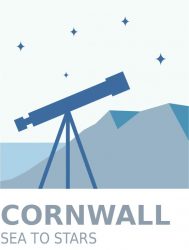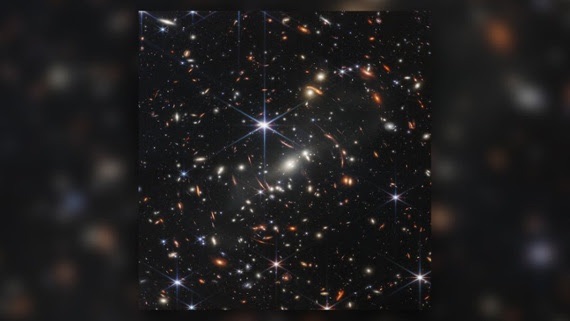Cornwall Spaceport is about to launch its first satellite this summer maybe as early as September Keep eyes and ears open for updates,
The James Webb Telescope is delivering the goods at last. After 30 years, some fantastic images are coming from the super scope. Gravitational lensing is the new buzzword, it is an outcome of Einstein’s theory of General Relativity – nuff said!
The Summer Triangle of bright stars: The three bright stars of the Summer Triangle are dominant now just East of centre. They are Vega in Lyra, The Harp; Deneb in Cygnus The Swan; and Altair in Aquila The Eagle. They become easier to spot as the summer goes through.
Solar System
The Sun is getting active now with a lot of Sun spots. The best way to observe the Sun is via www.spaceweather.comand it will even give you alerts when something special is occurring.
The Moon:
- First Quarter 5th
- Full Moon 12th
- Last Quarter 19th
- New Moon 27th
- The Full Moon in August is known as the Sturgeon Moon in the US.
Full Moon Illusion: If you look at a Full Moon when it is rising is always seems huge.
However if you observe it by putting a kitchen towel roll to one eye it promptly shrinks before your very eye.
The Planets: The naked eye planets are now to be seen before midnight Saturn as soon as it gets dark enough, Jupiter after 10.00pm. Mars is in Aries and can be seen in the early hours.
Meteors: August is the home of the most reliable meteor shower of the year peaking on the 12th, equally reliable is the Full Moon on the same date and also a Super Moon! This shower is often called the August meteors or more properly the Perseids. Naturally few shooting stars will be seen when the Moon is around but fortunately this shower has a broad peak and more should be observed after the official peak on the 12th.
Sky at Night: Updates our information on the James Webb Telescope and gives an indication as to the sort of scientific outcomes expected
Times BBC Four, 15th July @ 10.00pm. Repeated on BBC Four, 18th Aug @ (tbc)Then on iPlayer. Check BBC Sky at Night for the latest updates.
Roseland Observatory is on line www.roselandobservatory.co.uk and also on www.facebook.com/roselandobservatory
Brian Sheen runs the Roseland Observatory which is based in Truro High School for Girls.
Image: JWST first image. Credit: NASA


